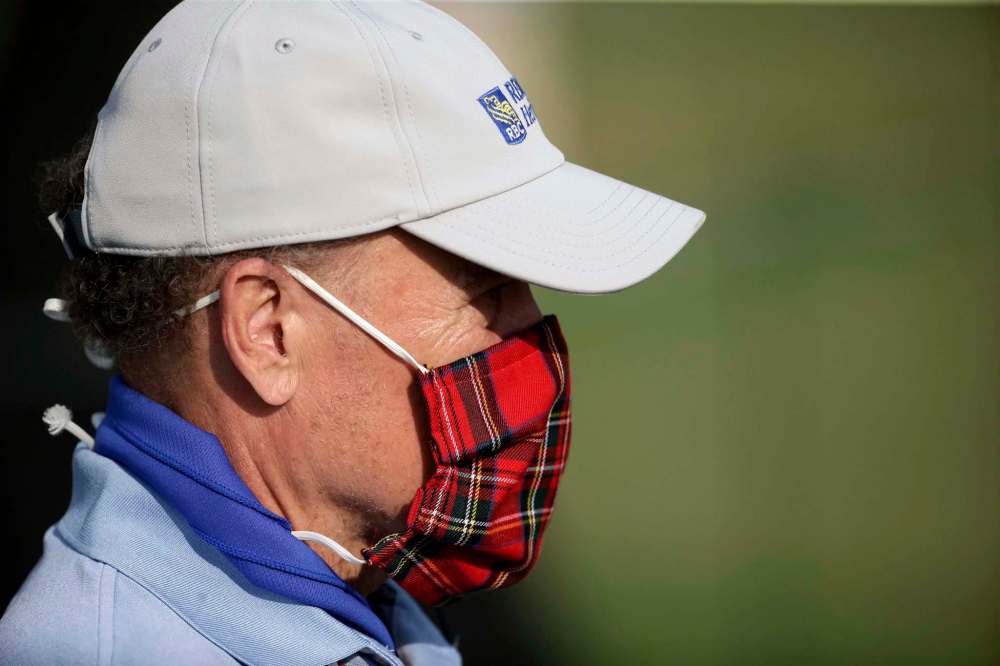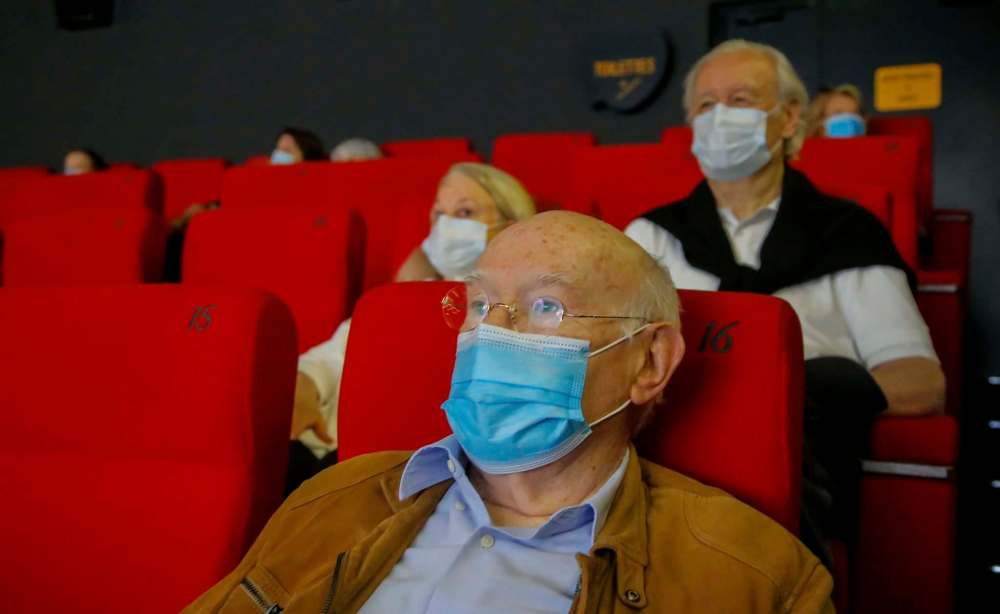Face the facts
Wearing a mask isn't a punishment for you, it's a kindness to others
Advertisement
Read this article for free:
or
Already have an account? Log in here »
To continue reading, please subscribe:
Monthly Digital Subscription
$1 per week for 24 weeks*
- Enjoy unlimited reading on winnipegfreepress.com
- Read the E-Edition, our digital replica newspaper
- Access News Break, our award-winning app
- Play interactive puzzles
*Billed as $4.00 plus GST every four weeks. After 24 weeks, price increases to the regular rate of $19.00 plus GST every four weeks. Offer available to new and qualified returning subscribers only. Cancel any time.
Monthly Digital Subscription
$4.75/week*
- Enjoy unlimited reading on winnipegfreepress.com
- Read the E-Edition, our digital replica newspaper
- Access News Break, our award-winning app
- Play interactive puzzles
*Billed as $19 plus GST every four weeks. Cancel any time.
To continue reading, please subscribe:
Add Free Press access to your Brandon Sun subscription for only an additional
$1 for the first 4 weeks*
*Your next subscription payment will increase by $1.00 and you will be charged $16.99 plus GST for four weeks. After four weeks, your payment will increase to $23.99 plus GST every four weeks.
Read unlimited articles for free today:
or
Already have an account? Log in here »
Hey there, time traveller!
This article was published 23/06/2020 (1940 days ago), so information in it may no longer be current.
A little over a week ago, I sat at a sink while someone else washed my hair. And I almost cried about how good it felt.
Not just because it felt good to finally get a cut and colour after weeks of Pandemic Roots — which it did — but because it felt like The Time Before, when you could just go get your hair done. It felt normal.
That is, until I returned to my stylist’s chair and looked in the mirror. The illusion of normal was quickly shattered. There we were, in our full masks. Oh. Right.

By now, Manitobans can do much more than we could do when the first presumptive positive case of COVID-19 was recorded in this province on March 12. Pandemic? What pandemic? You can eat at a restaurant. You can get your hair cut. You can work out in a gym. The economy is reopening. Normalcy is returning.
Our numbers are low; we’ve enjoyed a few days-long streaks of no cases. How well we’ve crushed that curve has become a point of provincial pride. We did good. We saw results. Now we want our reward, and that reward is to stand in line at Homesense.
I’ve been impressed by some of what I’ve seen venturing back into the world. I’m OK with restaurant-as-operating-theatre for a while. Many places I’ve ventured into have been explicitly clear about protocol, which helps mitigate anxiety.
But I’ve also been alarmed by what I’ve seen, which is a whole lot of complacency. Many people seem to be treating physical distancing as optional. Handwashing times are getting shorter. And masks have not become quite as ubiquitous as I’d hoped.
Now is the time to be doubling down on our efforts, not letting down our guard. We wouldn’t abandon, say, our fitness routines as soon as we saw results. Why would we stop engaging in public-health measures during the first wave of a global pandemic?
Masks, in particular, seem to be a real sticking point with people. As Manitoba enters Phase 3 of its reopening plan, we are all, inevitably, going to be around more people. Mask compliance should trend up, not down. And wearing a mask doesn’t mean wearing them around your chin, leaving your nose exposed.
In the United States, in particular, masks have become hotly politicized — to the point that the CEO of the AMC Theaters chain caught some static for telling a trade magazine that “we did not want to be drawn into a political controversy” with respect to mandatory masking in movie theatres.
There’s also troubling social attitudes toward masking: a study, published in May, conducted by researchers from Middlesex University London and the Mathematical Science Research Institute in Berkeley, Calif., showed that men were less likely to wear masks because they are “a sign of weakness.”
Here at home, many people are mistrustful about masks, owing to changing advice from health officials amid the early days of the North American leg of the COVID-19 world tour, accusing Dr. Theresa Tam, Canada’s chief medical officer, of “flip-flopping” on masks instead of acknowledging that advice may change in an evolving situation.
Remember: masks are just another tool in an arsenal that also should include handwashing, physical distancing and staying home if you feel unwell — all things we should all still be doing. Masks are helpful in spaces where consistent physical distancing isn’t possible. Wearing a mask protects other people from your droplets. Think of a mask as good manners.

Better yet, think of a mask as a condom for your face.
For weeks, many epidemiologists have been talking about the need to view COVID-19 through the lens of harm reduction. We need to figure out how to live with COVID-19, because we will be living with it until there is a vaccine. The use of condoms and other safer sex practices are classic examples of harm-reduction tools when it comes to STIs; handwashing, masking and distancing are harm-reduction tools when it comes to COVID-19.
It’s understandable that many people are feeling worn down by the constant constant-ness of a pandemic. Between the doomscrolling and the endless Zoom meetings and deluge of emails from brands reminding you that they are there for you during “this unprecendented time,” it’s a lot. But we need to stay on top of it.
Maybe people don’t like masks because they serve as a jarring reminder that things are not normal, that things are different. Masks ruin the tableau. Masks don’t allow us to forget.
But we need the reminder. The pandemic isn’t over, even in Manitoba. It only seems like it is.
jen.zoratti@freepress.mb.ca
Twitter: @JenZoratti

Jen Zoratti is a columnist and feature writer working in the Arts & Life department, as well as the author of the weekly newsletter NEXT. A National Newspaper Award finalist for arts and entertainment writing, Jen is a graduate of the Creative Communications program at RRC Polytech and was a music writer before joining the Free Press in 2013. Read more about Jen.
Every piece of reporting Jen produces is reviewed by an editing team before it is posted online or published in print – part of the Free Press‘s tradition, since 1872, of producing reliable independent journalism. Read more about Free Press’s history and mandate, and learn how our newsroom operates.
Our newsroom depends on a growing audience of readers to power our journalism. If you are not a paid reader, please consider becoming a subscriber.
Our newsroom depends on its audience of readers to power our journalism. Thank you for your support.
History
Updated on Tuesday, June 23, 2020 7:08 AM CDT: Corrects typo

